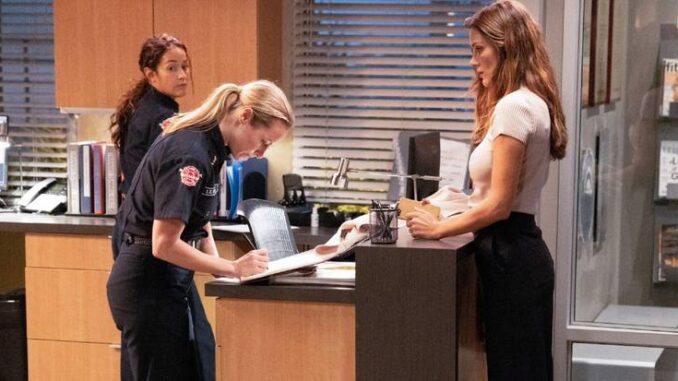
What Is Station 19's Concerning Cliffhanger with Maya Bishop?
The art of the television cliffhanger is a delicate balance, a tightrope walk between tantalizing suspense and outright emotional manipulation. A good cliffhanger leaves viewers breathless, desperate for answers, yet still trusting in the narrative journey. A concerning one, however, dips into the territory of genuine fear for a beloved character's well-being, suggesting a potential devastation that feels less like drama and more like a betrayal of hope. Station 19's Season 6 finale delivered precisely this kind of concerning cliffhanger with Maya Bishop, leaving audiences not just on the edge of their seats, but teetering on the brink of profound dread for her future.
Maya Bishop, from her initial introduction, was a tightly coiled spring of ambition, discipline, and simmering vulnerability. Shaped by an abusive, Olympic-obsessed father, her entire identity was forged in the crucible of perfectionism and external validation. She rose through the ranks of the Seattle Fire Department with ruthless efficiency, striving for command with a singular focus that often alienated those around her. Her journey was a constant push-and-pull between this rigid, often cold exterior and the deep-seated yearning for acceptance and love that only truly began to blossom through her relationship with Carina DeLuca. This complex foundation is crucial to understanding the profound anxiety evoked by her final Season 6 moments.
What makes the cliffhanger so particularly concerning is how it converges multiple, agonizing threads of Maya’s personal narrative. For seasons, viewers have witnessed her slow, painful unraveling. The loss of her captaincy, a devastating blow to her carefully constructed self-worth, sent her spiraling into unhealthy coping mechanisms, including a period of severe disordered eating. Then came the desperate, ethically dubious attempt to regain her position by reporting Carina's immigration status, a move born of fear and a chilling regression to her father's manipulative tactics. Just as she seemed to be finding a fragile peace and focusing on the deeply desired journey to parenthood with Carina, the rug was pulled out from under her again. The relentless IVF treatments, the physical and emotional toll, and the crushing weight of expectation created a pressure cooker that, by the finale, was ready to explode.
The penultimate moments of Season 6 saw Maya and Carina locked in a brutal, raw argument—a culmination of their shared stresses and Maya's internalized turmoil. Maya, overwhelmed and defensive, had just been confronted with the true depth of her actions and Carina's exhaustion. What followed was a scene designed to rip the audience’s heart out: Maya, in a distressed, almost frantic state, runs out of the house. The camera follows her as she sprints through the night, a raw, desperate energy propelling her forward. Then, abruptly, the visual cuts, replaced by the chilling, disembodling sounds of shattering glass and muffled sirens. The ambiguity is terrifyingly deliberate.
This is not a cliffhanger of simple "who shot JR?" suspense; it’s far more insidious. The implications are horrifyingly diverse and none of them good. Did Maya, in her state of extreme distress, simply get into an accident? Did she, pushed to the absolute edge by the weight of her failures and the perceived loss of Carina and their dream family, attempt to harm herself? Or, even more subtly, did the sound signify a complete mental breakdown, a shattering of the fragile self she had painstakingly rebuilt, leading to a situation where she is a danger to herself or others? Given her history of self-destructive tendencies and the show’s willingness to plunge its characters into the darkest corners of human experience, any of these scenarios feels disturbingly plausible.
The concern for Maya Bishop transcends mere plot curiosity because it taps into a universal empathy for someone teetering on the precipice of a severe mental health crisis. We have watched her fight so hard, fall so spectacularly, and then bravely try to pick up the pieces. To leave her in such a precarious, potentially devastating state feels like a cruel twist, a suggestion that even redemption is fleeting and that some wounds never truly heal. The shattering glass wasn’t just a sound effect; it was the sound of a fragile life, painstakingly pieced together, threatening to break apart once more, leaving viewers with a haunting, profound question: How much more can Maya Bishop endure before she is irrevocably broken? And what will be left of her, and the relationships she cherishes, if she survives this latest, terrifying fall?